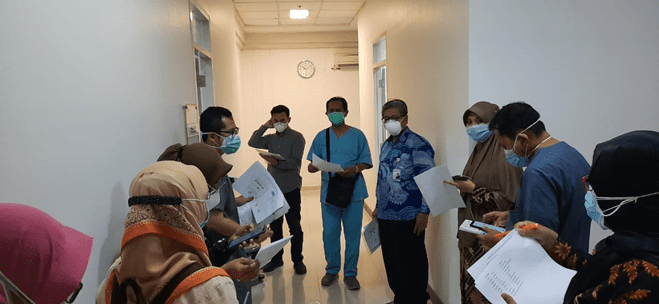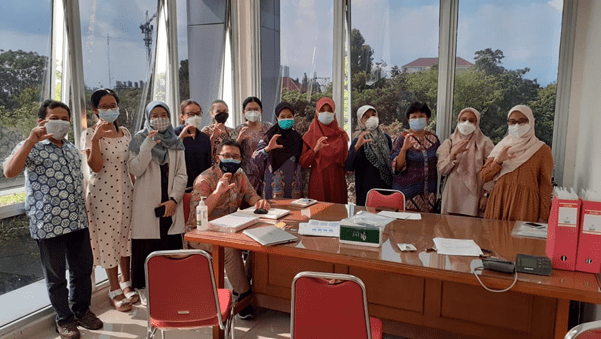Funders
COVID-19 Bill & Melinda Gates Foundation
Wellcome
MasterCard Therapeutics Accelerator
Principal Investigators
Professor Nick White, MORU
Associate Professor Buddha Basnyat, former director of OUCRU Nepal
Duration
March 2020 – May 2022
COVID-19 has caused nearly four million deaths. Although vaccines are being deployed, the timelines for widespread roll-out are likely to be lengthy, particularly in areas where health systems are most fragile. Many experts anticipate that smaller outbreaks may occur in the future and that the disease will likely stay with us for a considerable time.
Chloroquine/hydroxychloroquine have been in constant use for more than 60 years. They are cheap, safe, well-tolerated and, importantly, available now. However, we still do not know, a year after the emergence of COVID-19, whether they can prevent the infection. These drugs could still be of benefit while we wait for the world’s population to be vaccinated.
Chloroquine/hydroxychloroquine may also be beneficial in future pandemics, where vaccines would not be instantly available, or if vaccines became ineffective in the current pandemic.
Front-line healthcare workers and other high-risk individuals are at increased risk of infection. It is crucial that they are protected against the disease. Adequate personal protection is key, but additional interventions could further lower the risk of infection. There are currently no drugs for the prevention of COVID-19. The World Health Organization recommends that outside the clinical trial setting, we should not give healthcare workers any drugs claiming to prevent COVID-19 before we know that they are safe and effective.
The COPCOV study has enrolled 4,000+ vital frontline healthcare workers and staff who have close contact with COVID-19 patients to determine whether chloroquine or hydroxychloroquine effectively prevents or reduces the severity of COVID-19 infections.

The COPCOV study compares the drugs chloroquine and hydroxychloroquine against a placebo pill (not containing any drugs) for the prevention of COVID-19. Healthcare workers in participating centres and other individuals at greater risk of exposure to COVID-19 who wish to join the study must provide consent and cannot have had COVID-19 before enrollment.
Half of the participants receive the drug; the other half receive a placebo. The selection will be random. To enable unbiased assessments, neither the local study team nor the participant will know if they receive the drug or placebo tablets (“double-blind”). All participants will also take the usual precautions for protection against the virus. Participants will take the study drugs each day for three months, and will be followed closely to see how well the drug is tolerated, whether they contract the virus, and if they do, whether they develop mild or more severe COVID-19. If a participant develops COVID-19, they will be treated according to local treatment guidelines.
We expect to have preliminary results as to whether chloroquine or hydroxychloroquine can prevent COVID-19 in the middle of 2022.
The trial preparation was put on hold in Nepal due to the country’s mass vaccination of healthcare workers, but it now has started enrollment and randomization in the community adjoining the the B.P. Koirala Insititute of Health Sciences (BPKIHS) after the successful amendment of the protocol, which now includes the general public who are at risk to contract COVID-19.
B.P. Koirala Institute of Health Sciences (BPKIHS) was established on January 18, 1993, and subsequently upgraded as an Autonomous Health Sciences University on October 28, 1998, with a mandate to work towards developing a socially responsible and competent health workforce, providing health care and engaging in health research. BPKIHS is located in Eastern Nepal & it has extended its continued health services through teaching district concepts to Primary Health Care Centers, District Hospitals and Zonal Hospitals in six districts of the region.
This Institute is envisaged as one of the finest examples of Indo-Nepal Cooperation. This University is aptly named after Bisheshwar Prasad Koirala, Nepal’s visionary leader in social upliftment and a firm believer of National Reconciliation and National Integration. Candidates from disadvantaged groups are given opportunities for admission in most of the academic programmes. While selecting candidates for postgraduate studies, the Institute has given due recognition to those medical officers who have worked in the primary health centres and district hospitals.

This trial is hosted and led by the Faculty of Medicine, University of Indonesia and supported by the Universities of Indonesia and Oxford Clinical Research laboratory (IOCRL). This is a joint facility established in 2017 on the faculty’s campus in Central Jakarta, that serves as a hub to support clinical trials, education and public engagement.
The trial is recruiting at five active sites: Universitas Airlangga (UNAIR) Hospital and Husada Utama Hospital in Surabaya, Murni Teguh and Bunda Thamrin hospital in Medan, and Sardjito Hospital in Yogyakarta.